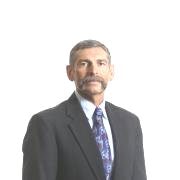 Jose Valdez
Jose ValdezI believe that there is a segment of our society, regardless of ethnic background, that depends on barriers outside their influence to justify their status in society. Further, that regardless of ethnicity we all face individual biases, institutional barriers and racist behaviors in this society. Therefore, those that rise above socioeconomic limitations, origin and/or a variety of other circumstances have developed capabilities and personal qualities that allow them to overcome the barriers or “negative end of privilege” we all experience in life.
Granted, there are some that are afforded opportunities beyond the average by virtue of family wealth, political power or other factors that differentiate us. However, to suggest that White privilege universally prevents underrepresented populations to rise beyond their status of origin is disingenuous. Further, underrepresented populations will not rise above the inherent biases, barriers and racism by the graces of the “well meaning” and sympathetic Whites.
In fact, it is impossible, according to Christopher Torres, because Whites cannot relate to the experiences of those affected by White privilege. Thus, Whites are incapable of fully comprehending what is required by the underrepresented to gain full, unbiased engagement in our society.
Torres, a faculty member at The Ohio State University at Mansfield and the Latino and Latin American Space for Engagement and Research, suggests that “it is still this group of people deciding what’s right for another group.” Further, that representative power is lacking for many “people of color.” That may be true, but is it caused solely by White privilege or do the people of color have a responsibility to influence the representative power through educational attainment, economic power, and political engagement? In addition, by what measures will we gauge achievement of equal representative power and equality? Those are questions that I have yet to have clearly articulated by those highlighting inequality.
Debbie Irving, a racial justice educator, stated that, “for those in the majority and those in position of power, it is imperative that they learn to challenge what is comfortable for them and confront the issues head-on and be willing to engage in dialogue with those who are not in power about ways to better accommodate them” (Arnett, 2015). I bristle at the suggestion that I need accommodations and the assistance of the amorphous “people in power” to be a competent, contributing member of this society.
Even if “it is not a level playing field,” who is the arbiter of when the field is level? Further, should people of color wait until the “people in power” ensure that there is a level playing field to play? We should not require those with “privilege” to gain self-fulfillment through fixing the problems faced by underrepresented communities.
I suggest focusing on elevating others through the concept of self-reliance, work ethic, education, moral values and intrinsic motivation rather than politically correct “babble” and undefined objectives. I am a first generation political refugee from Cuba that learned to speak English as a second language and experienced the privilege of growing up very lower middle class in a new country. The difference was that I had parents that encourage values, work, self-reliance, personal responsibility, and an appreciation for the opportunities and the excellence of this country, rather than promoting barriers due to privileges and dependence on others to “level the playing field.”
My parents were well educated, but worked as custodians because they did not learn the language proficiently. However, I never heard an excuse for their status or the biased perception that they faced daily. My parents were clear that we were to “knock on the door of opportunity” but to be prepared to “knock it down” if necessary through the values they instilled, faith, and reverence for this country. Lastly, I believe that there are those privileged by social, political and economic status, but that privilege is not solely reserved for a particular ethnic group. Let’s focus on elevating humanity through methods and principles that have stood the test of time.
Jose J. Valdes, Ph.D., is Affiliate Faculty in CIS and Business at Colorado Christian University.


















